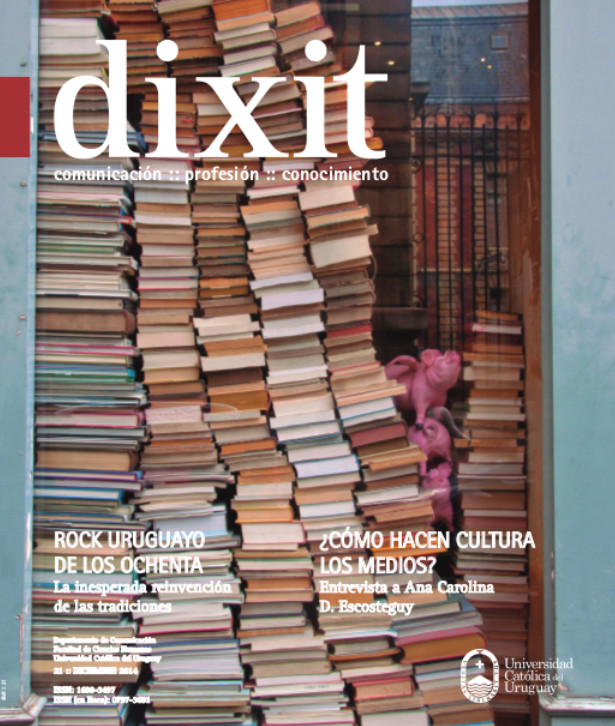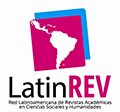Access to information, a human right blurred by the State acting on the patronage system and government officials treating public property as if it were their own
DOI:
https://doi.org/10.22235/d.v0i21.399Keywords:
Authoritarian legacies, secret, access to information, patronage and clientelismAbstract
The article describes the challenges faced in the process of approval of the legislation for Access to Public Information, Decree 57-2008, in Guatemala, mainly due to the legacy of authoritative regimes —despite the fact that the country has formally transitioned to democracy. This legacy manifests itself not only in the government institutions but also in numerous amounts of common practices (such as clientelism and patronage) that have created the perfect environment for the State to function in a way that privileges and favors certain sectors or groups. The weight of this legacy and its expressions has not only impacted the design of a piece of legislation, but it has gone so far as to endanger it's implementation and institutionalization. This became evident through an exercise of request to public records that the digital newspaper "Plaza Publica" carried out. After four years since the approval of the legislation, the path to guarantee free access to public information and the promotion of actions that would prevent blatant secrecy and abstruseness, remains a long and rocky one.
Downloads
References
Acuña, I. (2009). Elementos conceptuales del clientelismo político y sus repercusiones en la democracia. Revista Reflexiones. San José (Costa Rica): Universidad de Costa Rica.
Alcántara, M. (1995). De la reforma y la consolidación del sistema político en el equilibrio entre la democracia y mercado en América Latina. Alcántara, M., Crespo, I. Los límites de la consolidación democrática en América Latina. Salamanca: Universidad de Salamanca.
Azuara, C., Estrada, M. (2008). Reflexiones en torno a la clasificación de información. Revista de la Facultad de Derecho de México, tomo LVIII, 250. México: Universidad Nacional Autónoma Metropolitana.
Bobbio, N. (2000). El futuro de la democracia. México: Fondo de Cultura Económica.
Colomer, J. (1998). La transición a la democracia: el modelo español. Barcelona: Anagrama.
Crespo, I. (1995). ¿Hacia dónde van las democracias latinoamericanas? Alcántara, M., Crespo, I. Los límites de la consolidación democrática en América Latina. Salamanca: Universidad de Salamanca.
Dahl, R. (1997). La poliarquía. Participación y oposición. Madrid: Taurus.
Gallego, J. (2008). Control social, participación popular y patronazgo en la Atenas clásica. Revista Circe de Clásicos y Modernos, pp. 187-206. Santa Rosa: Universidad de La Pampa.
Garretón, M. (1991). La democracia entre dos épocas: América Latina en 1990. Foro Internacional, vol. 32, n. o 1, julio-septiembre. México: El Colegio de México.
Garretón, M. (1996). Los derechos humanos en los procesos de democratización. Jelin, E., Hershberg, E. Construir la democracia: Derechos humanos, ciudadanía y sociedad en América Latina. Caracas: Nueva Sociedad.
Gramajo, S. (2003). El derecho de acceso a la información: análisis del proceso de discusión y gestión en Guatemala. Guatemala: DOSES-SEDEM.
Gramajo, S. (2009). Un pasado que aún pesa. Los legados autoritarios imprimen su huella en la Ley de Acceso a la Información Pública en Guatemala [tesis doctoral]. México: FLACSO.
Hite, C., Cesarini, P. (2004). Introducing the Concept of Authoritarian Legacies. Hite, C., Cesarini, P. Authoritarian Legacies and Democracy in Latin America and Southern Europe. Indiana: University of Notre Dame Press.
Huntington, S. (1972). El orden político en las sociedades de cambio. Buenos Aires: Paidós.
Huntington, S. (1998). La tercera ola, la democratización de finales del siglo XX. Barcelona: Paidós.
Karl, T. (1970). Dilemas de la democratización en América Latina. Comparative Politics, 23 (1).
Linz, J., Stepan, A. (1996). Problems of democratic transition and consolidation. Southern Europe, South America and Post-Comunist Europe. Baltimore: Johns Hopkins University Press.
Lipset, S. (1991). Algunos requisitos sociales de la democracia. Desarrollo económico y legitimidad política, en Albert Batlle (comp). Diez textos básicos de ciencia política. Barcelona: Ariel.
López-Ayllón, S., Posadas, A. (2004). Las pruebas de daño e interés público en materia de acceso a la información. Una perspectiva comparada. México: CIDE-IFAI.
McCleary, R. (1999). Imponiendo la democracia: las élites guatemaltecas y el fin del conflicto armado. Guatemala: Artemis Edinter.
McCreery, D. (1994). Rural Guatemala, 1760-1940. California: Standford University Press.
Mainwaring, S., Hagopian, F. (2005). The third wave of democratization in Latin America. Advances and setbacks. Massachusetts: Cambridge University Press.
Mazzuca, S. (2002). ¿Democratización o burocratización? Inestabilidad del acceso al poder y estabilidad del ejercicio del poder en América Latina. Araucaria, 4 (7).
Munck, G. (2002). Una revisión de los estudios sobre la democracia: temáticas, conclusiones y desafíos. Revista Desarrollo Económico, 164 (41).
Munck, G. (1995). Democratic transitions in comparative perspective. Comparative Politics, 26 (3).
O'Donnell, G., Schmitter, P., Whitehead, L. (1994). Transiciones desde un gobierno autoritario. Barcelona: Paidós.
Payne, L. (2000). Uncivil Movements: the armed right wing and democracy in Latin America. Baltimore: Johns Hopkins University Press.
Pfoh, E. (2005). La formación del Estado Nacional en América Latina y la cuestión del clientelismo político. Revista de Historia de América. San José (Costa Rica): Instituto Panamericano de Geografía e Historia.
Poitevín, R., Sequen, A. (2002). Los desafíos de la democracia en Centroamérica. Guatemala: FLACSO.
Przeworski, A. (1988). Democracy as a contingent outcome of conflicts. Elster, J., Slagstad, R. Constitutionalism and Democracy. Massachusetts: Cambridge University Press.
Rustow, D. (1970). Transitions to democracy. Comparative Politics, vol. 2, n. o 2, abril. Chicago: University of Chicago Press.
Sam, M., Bustamante, C. (2010). Notas sobre patrimonialismo y fragilidad del Estado de Derecho en Tlaxcala: el caso del fraccionamiento Santa Elena. Revista de la Realidad Mexicana. México: Universidad Autónoma Metropolitana, Unidad Azcapotzalco.
Stepan, A. (1971). The Military in Politics: Changing patterns in Brazil. New Jersey: Princenton University Press.
Torres-Rivas, E. (2008), entrevista personal, 7 de julio de 2008.
Transparency International (2009). Guía de lenguaje claro sobre lucha contra la corrupción. Berlín.
Yashar, D. (1997). Demanding democracy, reform and reactions in Costa Rica and Guatemala, 1870-1950. California: Stanford University Press.
Downloads
Published
How to Cite
Issue
Section
License
Copyright (c) 2014 Dixit

This work is licensed under a Creative Commons Attribution-NonCommercial 4.0 International License.
From issue number 32 onwards all contents are licensed under the Creative Commons Attribution 4.0 International License (CC BY 4.0).
Issues number 29-31 are licensed under the Creative Commons Attribution-NonCommercial 4.0 International License.
The contents corresponding to number 28 and earlier editions are under the Creative Commons Attribution-NonCommercial-ShareAlike 4.0 International License.


















